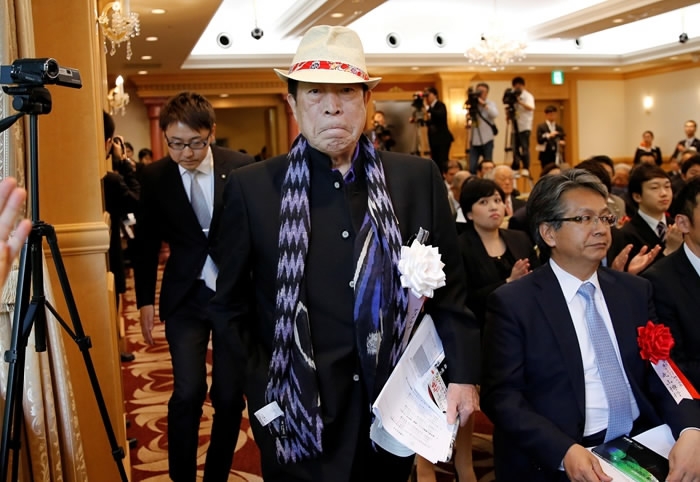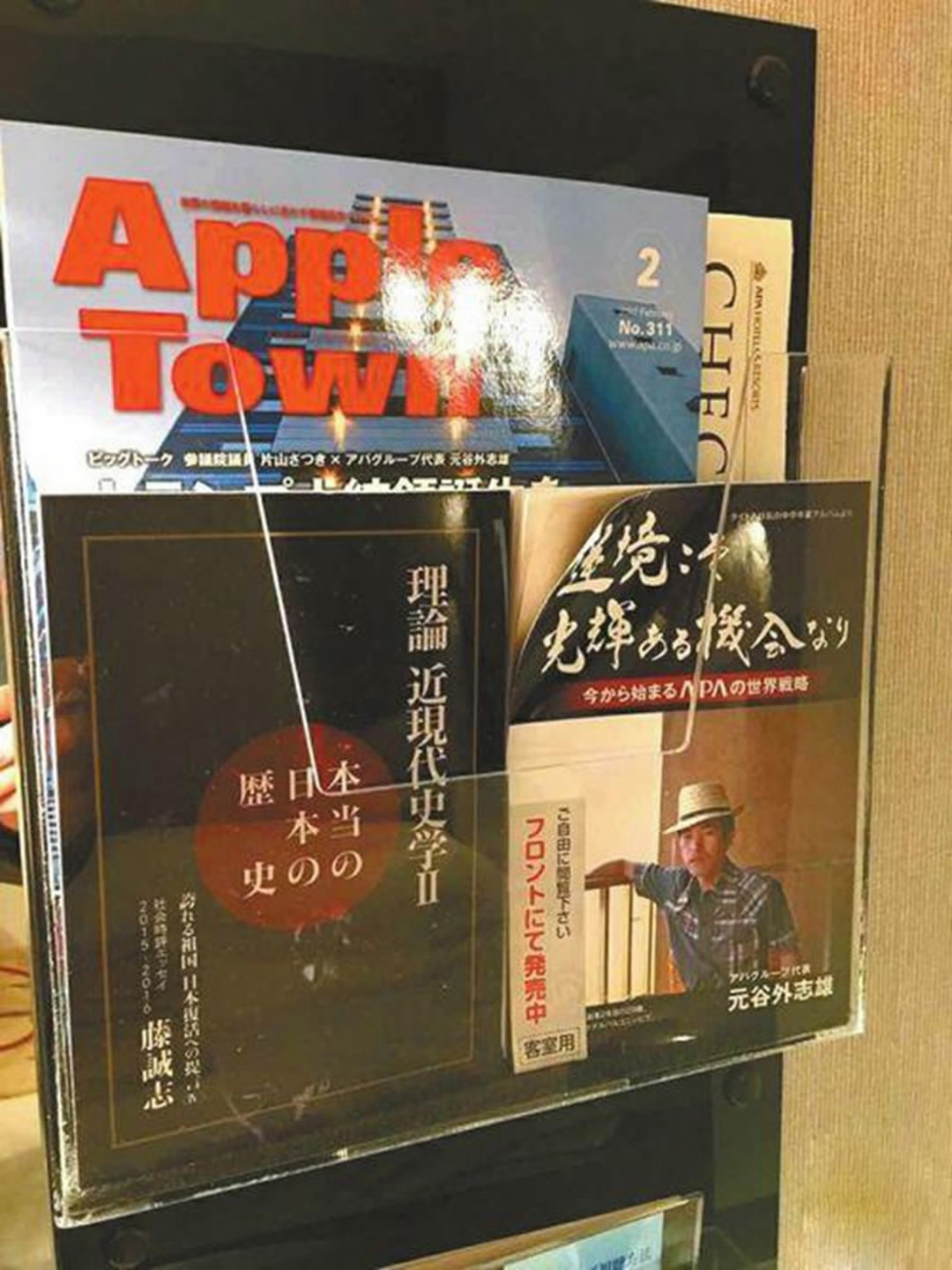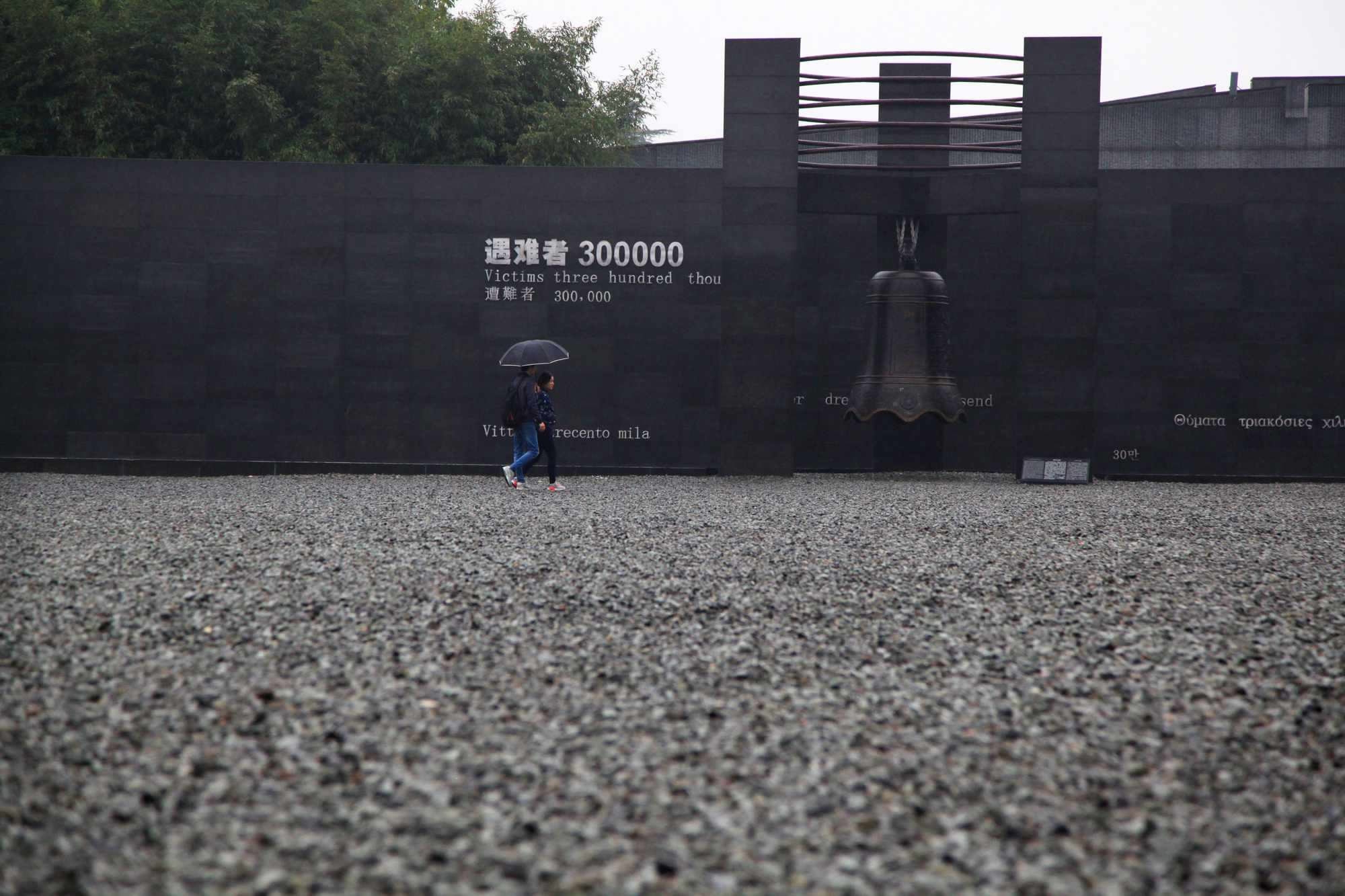The Japanese hotel chain APA has said it will not remove books that deny the Nanjing Massacre and the forced recruitment of "comfort women" during the 2020 Tokyo Olympic Games, according to the group's boss.
Toshio Motoya, CEO of the Tokyo-based hotel and real estate developer APA Group, sparked controversy earlier this year when it was revealed that books he had written containing right-wing views were placed in every room of the company's 400-plus hotels.
On Friday, Motoya said he would not remove the books during the Olympics. "Would I remove the books during the Olympics just because they're the Tokyo Olympics? That's really stupid," he said.

APA Group CEO Toshio Motoya arrives at a news conference on publication of his book in Tokyo, Japan on June 2, 2017. /VCG Photo
He stressed that he never had any intention of removing the books because of the world's largest multi-sport event.
"Is there something strange about putting my books in my hotels?" asked Motoya.
Using the pen name Seiji Fuji, Motoya wrote of the Nanjing Massacre that "these acts were all said to be committed by the Japanese army, but this is not true."
In his latest book entitled "The Real History of Japan: Japan Pride," he says the "so-called Nanking Massacre story" is "fabricated," according to a Reuters report.
"The Japanese army merely exposed and put to death the plainclothes soldiers (guerrillas) who abandoned their uniforms, stole the garments of regular citizens, and were hiding in the refugee zone with weapons and ammunition," Motoya wrote.
More than 300,000 Chinese were killed by Japanese invaders in the weeks following their occupation of Nanjing in eastern China on December 13, 1937.
Motoya also denied stories that Korean women were forced to work as prostitutes in wartime military brothels as so-called "comfort women."

Books denying Japan's history of aggression before and during World War II are on display in a room of an APA hotel. /Xinhua Photo
Earlier controversy
In January, it was reported that Motoya's controversial books were placed in the guest rooms of an APA hotel in Sapporo, an official reception hotel for athletes attending the 2017 Asian Winter Games in the Japanese city.
The news sparked outrage among Chinese and South Koreans, as it was intended that athletes from both countries should stay in the hotel.
At a press conference on January 17, Chinese Foreign Ministry spokesperson Hua Chunying urged the Japanese government to reflect on the country's past aggression and ensure its people are exposed to the true version of history in order to regain trust from its Asian neighbors.
"The truth of what happened will not be changed by passing of time nor will the facts disappear because of deliberate ignorance," she said, indicating that there were still forces in Japan attempting to deny or distort the truth.

The Memorial Hall of the Victims in Nanjing Massacre by Japanese Invaders in Nanjing, Jiangsu Province in east China. /VCG Photo
A week later, China's National Tourism Administration called on Chinese tourism agencies and websites to stop promoting or using the APA chain and called on Chinese tourists to boycott the hotels.
Following huge pressure, the APA hotel in Sapporo made a pledge to the Games organizer that it would remove the books from rooms to accommodate athletes from all countries in late January.
However, Motoya denied the hotel had removed the books at his new book release event in Tokyo on Friday. "We didn't remove the books from APA Hotels in Sapporo," he said. "So I don't want there to be any misunderstanding."
Related stories:
Not in my name: Japanese student in China reacts to APA hotel scandal
China's tourism companies boycott Japanese hotel chain over denial of Nanjing Massacre
APA to remove controversial books from hotels during Asian Winter Games
Chinese residents in Tokyo protest hotel chain in denial of Nanjing Massacre









